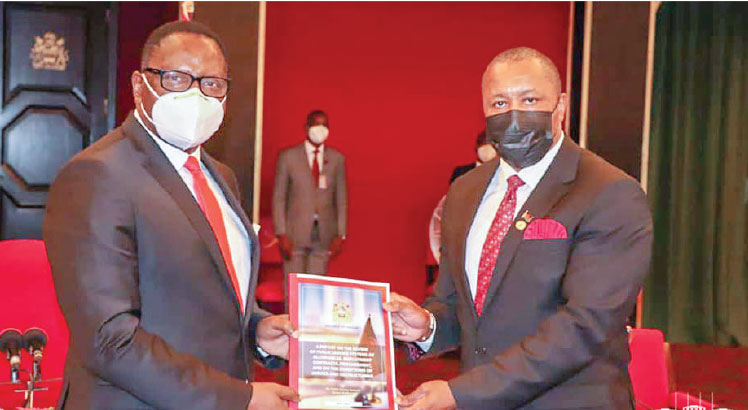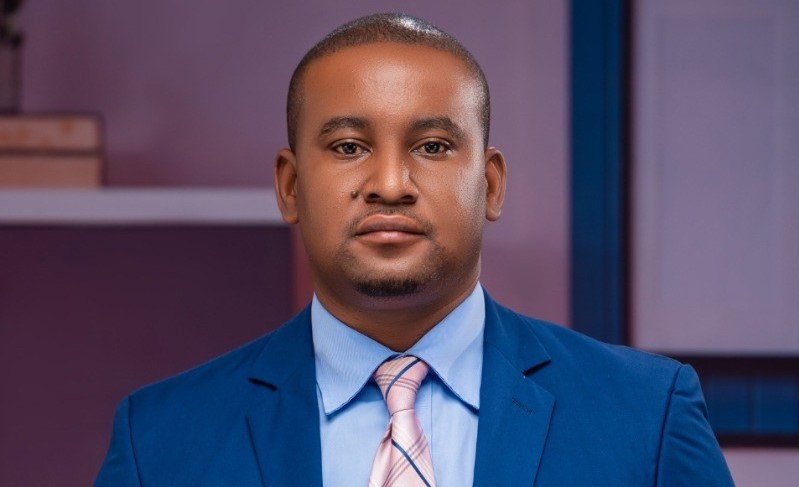Reforms face resistance
Resistance is impeding successful implementation of public sector reforms with some government ministries, departments and agencies (MDAs) citing factors like lack of policy and legal framework to support the changes as stumbling blocks, it has emerged.
In a written response to The Nation questionnaire, Public Sector Reforms Management Department spokesperson Suzgo Khunga said the apparent resistance is both on the part of institutions and individuals.

She said the factors include lack of capacity and changes in profile of MDAs due to changes in Cabinet composition.
Without naming the concerned officers and institutions, Khunga said it has been noted that some offices look at reforms as a “by-the way” activity. She said to overcome this, during the next circle of reforms contracts covering the period 2023 to 2026, the department will ensure that reforms are mainstreamed in MDAs’ annual budgets.
She said: “We understand that in both officers and institutions, there is lack of technical capacity to carry out the planned reforms, changes in profiles or mandates of MDAs such as Ministry of Civic Education being absorbed as a department in the Ministry of Local Government and absence of policies or legal instruments all could contribute to poor implementation of public sector reforms.”
The Malawi Public Sector Reforms Programme Report for 2020-2023 also outlined resistance as one of the stumbling blocks in the implementation of reforms.
In November 2020, MDAs alongside local councils, and constitutional bodies as well as two other branches of government, namely the Judiciary and the Legislature, signed Reforms Performance Contracts with President Lazarus Chakwera under the theme ‘Creating a better Malawi’.
The report on reforms has captured progress in almost all MDAs, but conspicuously missing is the Office of the President and Cabinet (OPC) and State Residences.
Khunga said the OPC and State Residences played the coordinating and monitoring role on the progress of implementation through her department and that OPC will be included in the next cycle.
She said: “You will be pleased to note that in the next performance contracts, the OPC has committed to implement public sector reforms while OVP [Office of the Vice-President] has already started as seen in the review of the reforms contract aligning it to the three pillars and seven enablers of the MW2063 and the reforms reporting template, reforms self-assessment and monitoring template have been revised to assist MDAs in the alignment process.”
Commenting on the situation, economist Milward Tobias in an interview said resistance and reluctance to implement reforms should be blamed on the President who seems to lack commitment to drive the reform agenda.
He said: “The President is the driver who must define the destination on reforms. We must know what he wants to achieve and ensure that every MDA follows this vision.
“He must ask a question of what sort of a country do I want to hand over to the next person? If there is no interest from the top, I doubt we will make any meaningful progress.”
Tobias, who has expressed interest to contest for the presidency in the 2025 Tripartite Elections, also said the approach in the implementation of the reforms does not help where MDAs are expected to come up with reform areas, arguing that this is as good as asking a patient to make their own prescription instead of the doctor. He said the leader must define the reforms for MDAs in line with the national vision and it does not require legal framework for institutions to do what is right.
In a separate interview, Catholic Commission for Justice and Peace national coordinator Boniface Chibwana said the President sent the wrong message on his commitment to public sector reforms when he refused to make public a report he had commissioned on reforms.
He said: “The President missed an opportunity when he refused to make this report public and this makes it difficult when it comes to monitoring implementation of the recommendations. There is no political will when it comes public sector reforms in this country.”
Chibwana suggested sanctions against MDAs and officers that are pulling in reverse for the reform agenda saying this may improve compliance.
Vice-President Saulos Chilima was appointed champion of public reforms, but after the President withdrew his delegated powers in June last year following the Anti-Corruption Bureau’s (ACB) report which implicated him in corruption, he has not been active in this role.
The reforms report for 2020- 2026 has both Chakwera and Chilima signing in their respective positions as President and Vice- President while Secretary to the Office of the Vice-President Lucky Sikwese also doubles as controlling officer for reforms department.
Malawi has made 79 attempts to reform the public sector since independence in 1964. The current drive, initiated by former president Peter Mutharika in 2014, has been seen to be gathering momentum.





